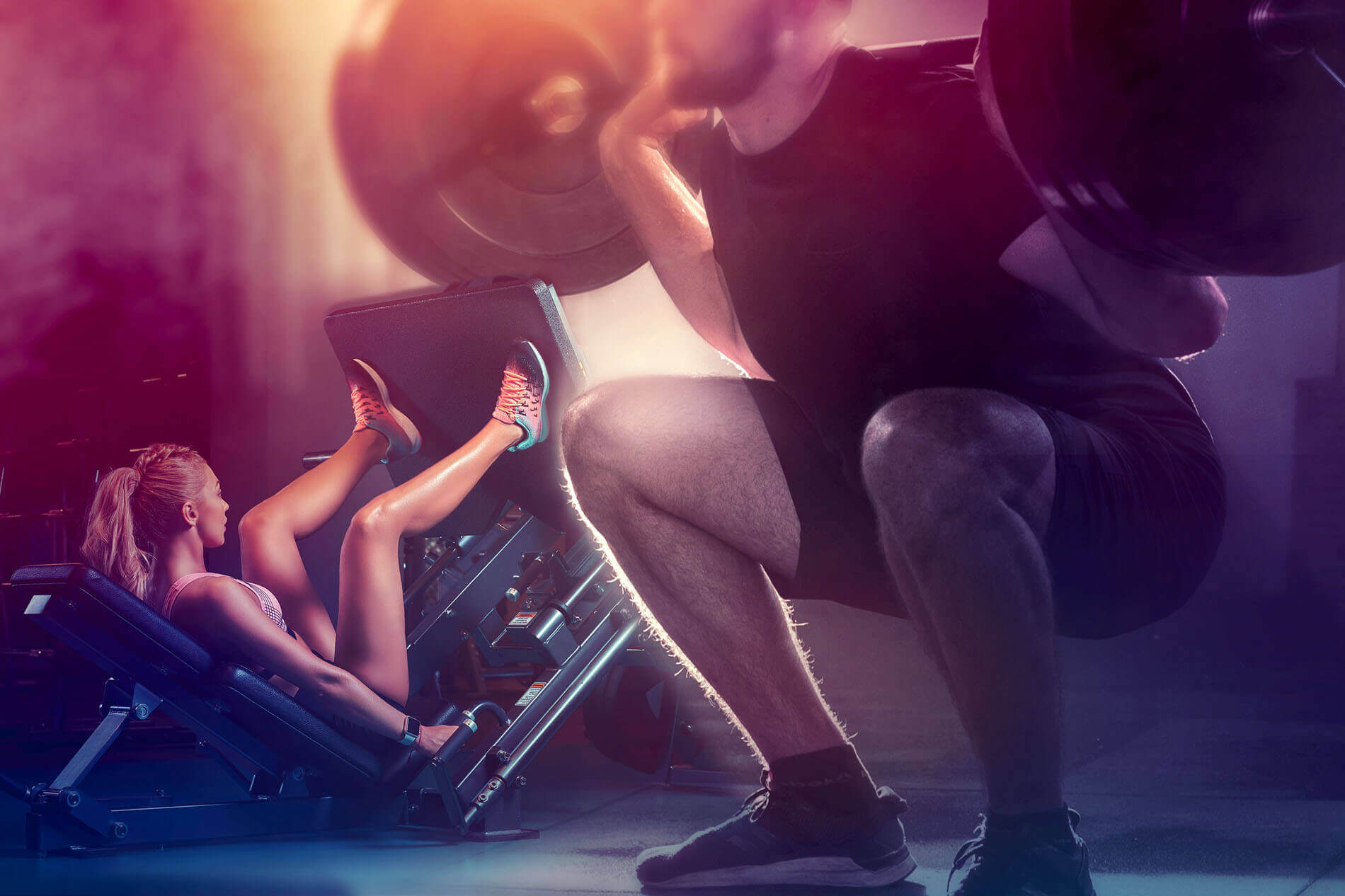You often hear that machines or free weights are superior for building muscle or strength. From experienced strength coaches to professional bodybuilders, the claims made about the topic are many and can often be confusing. But what does the latest scientific evidence have to say?
Overview
What did they test? The researchers reviewed and meta-analyzed the current scientific literature to compare free weights to machines for building muscle, strength and power.
What did they find? Machines and free weights are equally good at building muscle, power and general strength. However, when strength is assessed via a specific resistance training modality (eg: via a squat one repetition maximum strength test), then training using that specific modality (eg: the squat) will produce greater strength gains than a non-specific resistance training modality (eg: the leg press).
What does it mean for you? If you want to maximize strength on a specific exercise, then doing that exercise is almost non-negotiable. Other than that, using machines or free weights will most likely lead to the same gains in muscle, general strength and power.
What’s the Problem?
When hopping on board the gain train, it is entirely normal to hear that free weights are better than machines for muscle growth and strength, with the rationale usually including words like “hormones”, “functional”, “stabilizing muscles,” and others. From the classic “squats will grow your upper body because they release growth hormone” to “the body works as one unit, so isolation exercises are useless”, the barbell elitists often present the barbell as a non-negotiable tool when it comes to maximizing strength and hypertrophy.

A great example of such claims is the article “Why Barbells Are Better Than Machines”, by Mark Rippetoe, author of Starting Strength, who wrote:
“Let’s just clear it up right here: barbell training is the best way to train for strength. Bar none. Nothing else even comes close to the effectiveness of barbell squats, presses, deadlifts, and the Olympic lifts for the development of strength, power, and muscular size.”
He then goes on about “why machines don’t work” but fails to cite any evidence or even present a logical argument as to why.
He writes:
“Machines have never formed the basis of the competitive strength athlete’s program because they lack the barbell’s capacity for long-term progress: you cannot increase the weight on a leg extension for years like you can a deadlift, because muscles do not normally work in isolation from all the other muscles in the area.”
Aside from the fact that leg extensions can be a great addition to a squatting program for total quad growth, and in particular growth of the rectus femoris, which is not fully targeted by squats 1, the cherry-picking of the leg extension, versus a leg press, hack squat or any other machine compound exercise, doesn’t make for a great argument.
Don’t get me wrong, Mark Rippetoe/Starting Strength (and barbells) are great and you can make amazing gains by literally just owning a barbell and some plates. However, the thinking that “machines are not good for growth or strength” is flawed and somewhat archaic. It may also be acting as a barrier to entry to resistance training for people who don’t enjoy training with barbells but that’s a discussion for another day.
It is also common to hear that “getting stronger on the basic compound lifts” (e.g.: squat, bench press & deadlift) is the best way to approach strength and muscle growth, something that can create the illusion that only free weight exercises use multiple muscle groups simultaneously, something that is not true as a lat pull-down or a machine chest press is also compound exercises.







